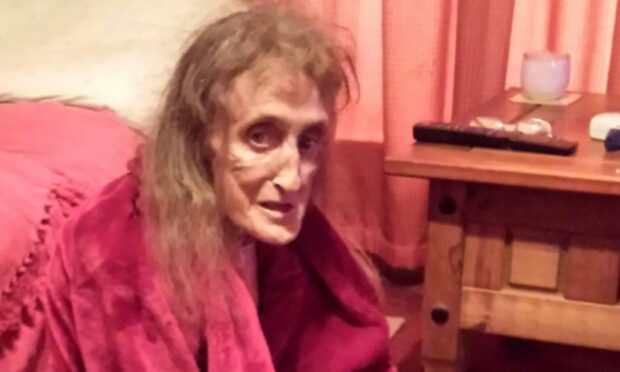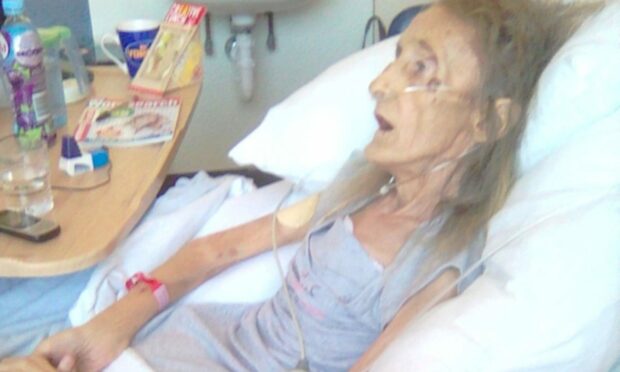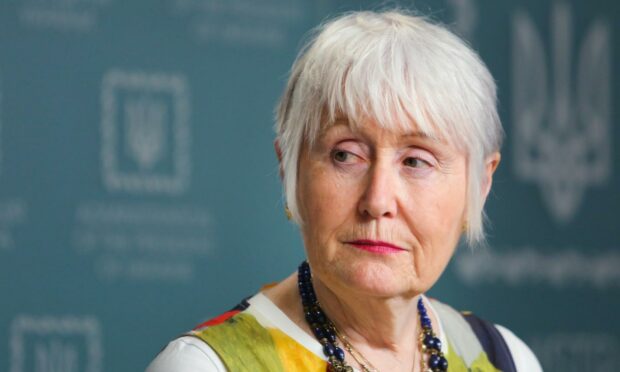End-of-life charities are demanding urgent reform of the benefits system, and an end to the “degrading” treatment of those with terminal illnesses.
Over the last three years, more than 1,000 Dundee and Tayside residents with severely life-limiting diagnoses have applied for financial help from the Department for Work and Pensions (DWP).
Patients are able to fast-track the process, and receive a higher rate, if their doctor says they will likely die from their condition within six months.
These funds can be used to help cover a likely job loss and the urgent home alterations most will need to live comfortably.
Campaigners say the process is too complicated, with proposed changes to the system not going far enough.
Since 2018, around 100 people across the UK who were initially denied benefits died while waiting for an appeal.
Christine’s story
In July 2018, Christine McCluskey from Dundee received a diagnosis of terminal lung cancer. She had also been suffering from Crohn’s Disease, COPD, osteoporosis and the long-term effects of a stroke in 2005.
Her Personal Independence Payments (PIP) had been stopped the month before, and she’d been told she would have to pay back some other benefits, after a physical assessment described her as “slim” and a “pleasant lady”.
It was also suggested she would be able to walk 200m (650ft) – because she managed to move from the sofa to open the front door.
At the time, she weighed just 5st 6lbs (34kg) and was being fed by a drip.
She resubmitted forms to the DWP about her terminal diagnosis, and her condition continued to deteriorate as she was deemed too weak to start chemotherapy.
In September, when she weighed just 3st (19kg), she was told she’d have to start the claims process afresh.
She died later that day, aged 61.
Christine’s daughter Michelle said the benefits process, requiring terminally ill people to put a timeframe on their own death, is “degrading”.
She added: “I never wanted to see pictures of mum plastered in newspapers and the internet but people need to see what’s going on and how ill people are when these decisions are being made.
“You just have to look at her to see she wasn’t well and that was before she had cancer.”
PIP money covers crucial home changes
Madeleine Moon had first-hand experience of the devastation a terminal diagnosis can bring, following her husband Steve’s death from Motor Neurone Disease (MND).
She said: “Most people in the initial shock [of receiving a terminal diagnosis] aren’t thinking about benefits.
“They are thinking ‘what have I got to do to live whatever time I have left’.”
The former Labour MP for Bridgend had sponsored a parliamentary bill which proposed replacing the six-month terminal illness PIP limit with a clinical judgement, but she lost her seat after its first reading.
“You are going to need a bathroom and a bedroom that are downstairs and to look at access to your property, all of which needs money and it needs time,” she added.
“You need to plan for the new future and you need to stabilise the family’s finances.
“What you can’t do is spend the time going through the long time to access PIP.
“The money lets them plan to live.”
Proposed changes ‘still not ideal’
Michelle McCluskey told the Evening Tele earlier this year: “Nobody should have to prove how long they have to live. Terminal means terminal.
“My mum wasted away to nothing and I just do not want anyone to go through what she went through.”
The UK government has said it is extending the current end-of-life rule from six months to 12.

The Motor Neuron Disease Association and Marie Curie have welcomed the step, but said more will need to be done.
And Dr Catherine Millington-Sanders from the Royal College of GPs said the system is “frustrating for GPs and detrimental for patients.”
What happens next?
In spring, Social Security Scotland will take over the administration of PIP north of the border.
It will instead be known as Adult Disability Payment, and the Scottish Government says the new system is based on “dignity, fairness and respect”.
Meanwhile a DWP spokesman said dealing with claims “quickly and compassionately” is a priority, and the majority of claimants receive the highest possible award within three days.
“We will be extending the current six-month end of life rule to 12-months so more people can get the vital support they need,” he added.


